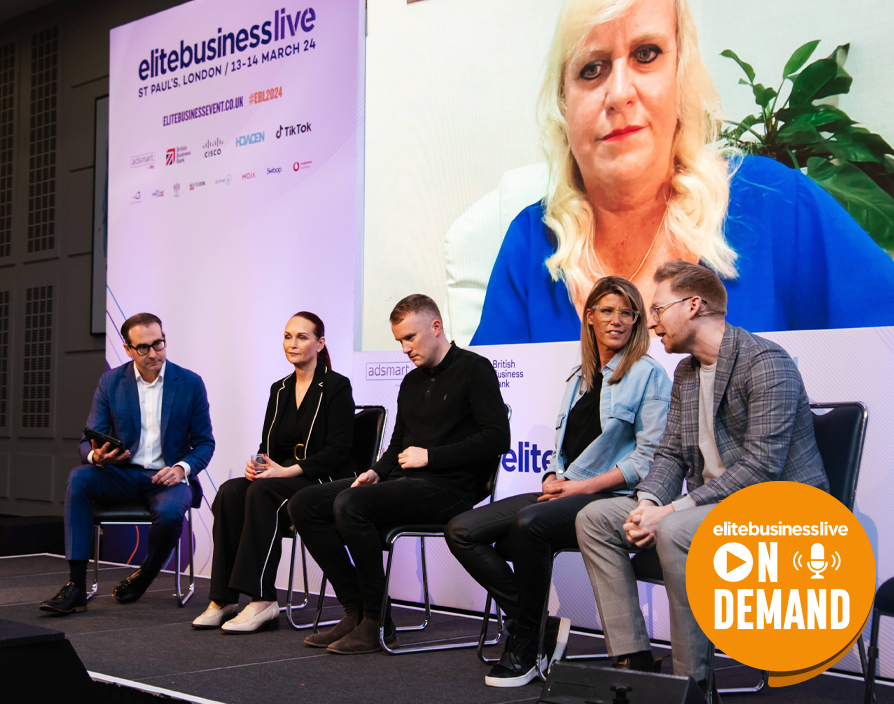A successful workforce requires cooperation, collaboration and teamwork. One of the most critical key factors in growing a business is attracting and retaining top talent. In today’s rapidly evolving dynamic business landscape, traditional approaches to talent management are proving to be outdated. With a hyper-competitive job market and changing employee expectations, businesses must now develop inventive ways to attract and keep their employees. What are the best ways companies can recruit top talent? And more importantly, how can they maintain a thriving workforce?
Chelsey Baker, Founder & CEO of National Mentoring Day, Dr Lynda Folan, Managing Director of Inspired Development Solutions and Doctor of Organisational Psychology, Matthew Phelan, Co-Founder of The Happiness Index, Pip Jamieson, Founder & CEO of The Dots and Rob Wall, Leadership Coach & Consultant joined us on stage at Elite Business Live 2024 to speak about ways businesses can attract skilled workers and retain that talent.
First and foremost, how do you build a business that people want to be a part of? Including your employees in your overall company vision can be a great way to get them involved and feel important. Make them part of the team, rather than simply working for a pay check. Rob said: “When I was coming out of university a banker in the city asked me about my plans for the future, and he said I had to make a decision, either I was going to spend my life building somebody else’s vision, or focus on building my vision. And that stuck with me. I thought about it, but those two things do not have to be mutually exclusive. You don’t have to build your vision or choose to build somebody else’s. If you have a vision large enough, you can recruit and attract people. Communicate to them how the vision they have for their lives will fit in with the overarching vision that you have for your company or your business. They don’t have to be mutually exclusive.”
Dr Lynda explained the importance of creating a company culture that attracts employees and cultivates passion in their work. She said: “If you’re going to build a company that people really want to come to and be a part of, you’ve got to create a substantive underlying culture that encourages people to want to give their passion and their energy to it. I don’t think you can create an environment without that, it’s key to any organisation’s success. Employee retention depends on the ability to build the right organisational culture, whether that’s a small culture for a startup organisation or a culture that you grow into a larger organisation. That is the foundation.”
Company morals and values can attract talent. Values founded on things like positivity, kindness and even environmental sustainability can go a long way to recruiting and retaining talent who want to make a similar impact on the world. Pip said: “From the beginning, we always had very clear ethics, values and social purpose, and that made it incredibly easy to hire. For those who don’t know us, our algorithm is actually based on positivity and kindness. Having that in our DNA, especially with the younger generation coming through, was very attractive for recruitment. The younger generation often wants to make money, but they also want to have a positive impact. And so that not only helps us attract people, but retain them as well.”
What’s the secret to attracting top talent? It is important to resonate not only with people’s minds, but with their hearts, Matthew explained. Having a balance of these two aspects is key. Your business should have a direction and vision but also a culture that resonates and builds team spirit. Matthew said: “Certain businesses at the beginning tend to reflect the founder. If you have a heart-driven founder, that’s what the cultural reflective is. If it’s someone who’s more rational, the business might reflect that. As human beings, we’re attracted by both, and we need both. It’s actually what we need for direction. Kindness is a culture that might attract certain types of employees. That’s a heart-related thing that is important, but human beings still need to know what their purpose is. The more you look at the data, all generations want purpose. But what has changed is the context and technology around what people want.”
Mentorship within a business is important for employees. Not only does it allow them to gain skills and expertise through a trusted mentor-mentee relationship, but it also gives them courage and motivation to climb up the career ladder within the organisation by having someone by their side to support and guide them. Chelsey explained. “I’ve been allowed to see the internal workings of these mentoring programs and researching what they have done. It’s incredible. So, I think certainly for Gen Z’s and millennials coming in, they need to see that if they actually take a job at this company, that there is a career progression strategy in place. And usually, that’s done through mentoring, that they’re not just going to be left without anything. It’s a mindset and a methodology to come from leadership, then it trickles down and filters down.”
Share via:








































